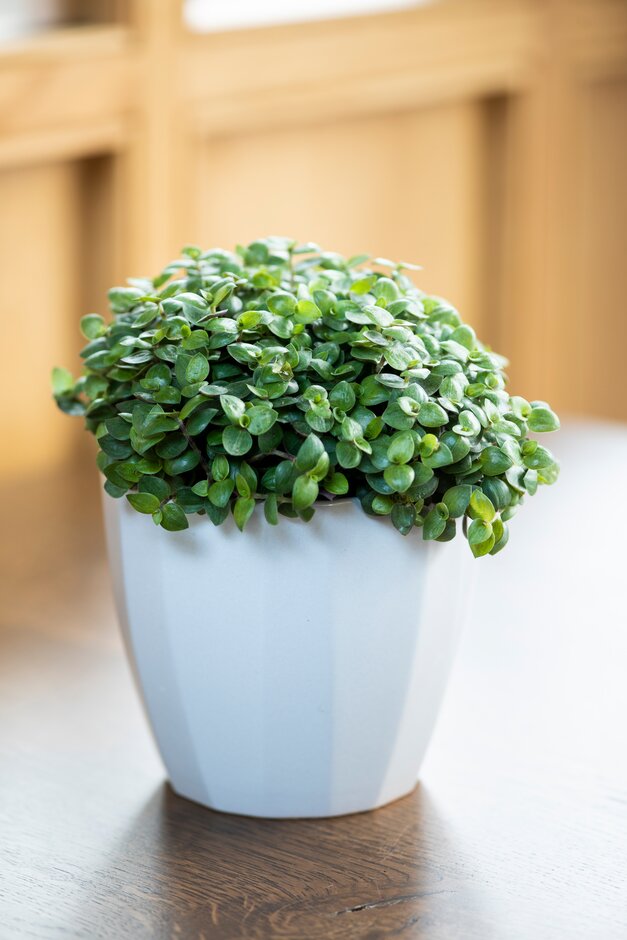Callisia repens
A species of tender evergreen perennial with a trailing habit, forming mats of branching stems that root at the nodes, with broadly ovate, slightly fleshy, pointed green leaves to 4cm long. Clusters of tiny white flowers are borne in the leaf axils of ascending stems in late spring and early summer
Size
Ultimate height
0.1–0.5 metresTime to ultimate height
5–10 yearsUltimate spread
0.5–1 metresGrowing conditions
Moisture
Well–drainedpH
Acid, Neutral, AlkalineColour & scent
| Stem | Flower | Foliage | Fruit | |
| Spring | White | Green | ||
|---|---|---|---|---|
| Summer | White | Green | ||
| Autumn | Green | |||
| Winter | Green |
Position
- Partial shade
Aspect
East–facing or West–facing
Exposure
Sheltered Hardiness
H1BBotanical details
- Family
- Commelinaceae
- Native to GB / Ireland
- No
- Foliage
- Evergreen
- Habit
- Matforming, Trailing
- Genus
Callisia are trailing or bushy evergreen perennials with slightly fleshy stems and leaves, and small, 3-petalled white or pink flowers
- Name status
Correct
How to grow
Cultivation
Can be grown outdoors where temperatures do not fall below 10°C in winter; more often grown in a hanging basket or container or as a houseplant. Grow in two parts peat-free John Innes No 2 and one part grit, in bright filtered light. Water freely in the growing season and apply a liquid fertiliser monthly
Propagation
Propagate by softwood cuttings, by root cuttings, removing 6-7cm of the root tip in spring, or by division, removing rooted offsets. To produce dense coverage, pot up several cuttings in an 8cm container
Suggested planting locations and garden types
- hanging basket
- Houseplants
- Patio and container plants
- Rock garden
- Sub-tropical
- Conservatory and greenhouse
- Ground cover
Pruning
No pruning required
Pests
Generally pest-free
Diseases
Generally disease-free
Get involved
The RHS is the UK’s gardening charity, helping people and plants to grow - nurturing a healthier, happier world, one person and one plant at a time.
